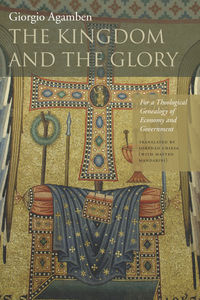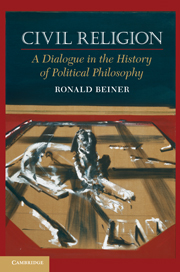By the time preachers in America address their congregations this Sunday, the nation’s Supreme Court will have ruled on the health insurance reform act passed by Congress and signed into law by President Obama in March of 2010. The coincidence of this much-anticipated ruling and a quirky Jesus healing story is irresistible!
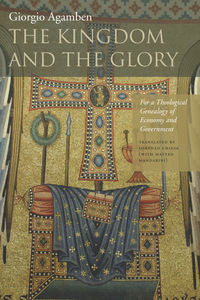
Hollywood and academia may not often be thought of in one breath, but they do share some things, not the least being a hyperventilating and parochial culture of celebrity. Having been in this business now for a few of these cycles, I’ve seen ‘em come and I’ve seen ‘em go. Which figures are selected to be smiled upon by the fame machine seems almost random, a matter of tuche, the semi-theological bad luck of those who are selected, by a blind fate, or an erratic Greek deity. The perduring and valuable work of genuine scholars mounts in height and depth gradually over decades, chiseled out of serious matter, and their import is often recognized only in retrospect, late in a career or after the author is dead. Others—the academic version of one hit wonders—flash up in an instant, are talked about—though not as often talked to, and still less often carefully read—for a frenzied spasm of a few years, then are dropped like an empty foil bag of chips, left to blow heedlessly among the trees in the groves of academe, or to wander the halls of academic conferences, for decades to come.
I’m afraid, but I’m quite sure, that the work of Agamben falls into the celebrity category. […]
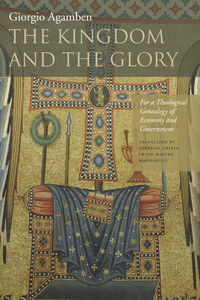
Glory doesn’t work. Amen.
This condensed assertion and acclamation get at the heart of Giorgio Agamben’s The Kingdom and the Glory, the second part of the second part of his Homo Sacer project (whose volumes include Homo Sacer, State of Exception, and Remnants of Auschwitz). The Kingdom and the Glory’s subtitle, For a Theological Genealogy of Economy and Government, allusively explains the Foucaultian-feeling rhythms according to which this text pulses—rhythms that animate the Homo Sacer project from its inception but which come to archaeological fruition in The Kingdom and the Glory. In Foucaultian fashion, The Kingdom and the Glory’s initial six sections trace a meticulous, albeit particular, conceptual genealogy through early and medieval Christian theologies (a genealogy replete with long quotations that serve as evidential support) whose impetus comes, indirectly, from an intertextual conversation between Erich Peterson and Carl Schmitt, which recurs throughout Agamben’s text. More directly, the impetus comes from Agamben’s explicit aim of catching, via theology, “a glimpse of something like the ultimate structure of the governmental machine of the West in the relation between oikonomia and Glory” (xii)—a relation he casts in State of Exception in terms of auctoritas and potestas. […]

The purpose of this book is the clarification of the American mind, especially Evangelicals [….]
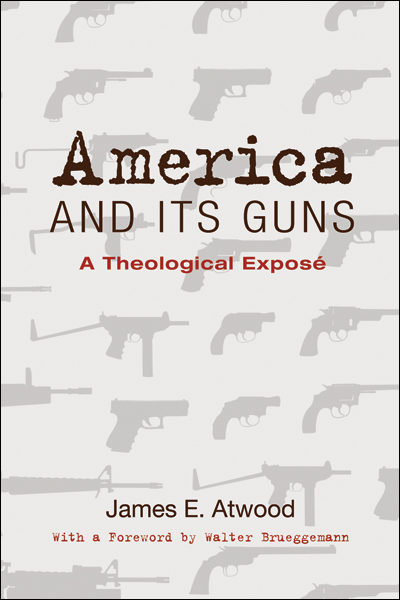
As the golden calf gave the ancients a false sense of security, many twenty-first century Americans look for security in weapons. When our leaders are absent or fail us; when our God is invisible and from all appearances is absent from our lives; when we don’t know how we can keep going; when we are consumed by our fears and feel threatened by those who are not like us, those are the moments when new idols are imagined and fashioned and desperate people give them their ultimate concerns, devotion, and focused attention.
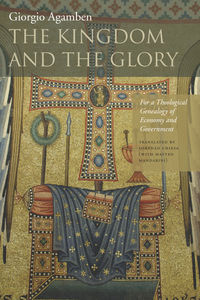
For years now, one of Giorgio Agamben’s major concerns has been the fracture that lies at the heart of modern humanity (i.e. humanity’s sense of sovereignty). This is something he has described in a variety of contexts as that which divides the experience of something from one’s knowledge of it (cf. his Infancy and History). Due to such a fracture, we are no longer able to experience life as we ought to. The task of poetry (as it deals with our experiences) is subsequently forever divided from that of philosophy (that which deals with our knowledge). Such divisions, I would add, have since become the preeminent focus of Agamben’s work, taking him on a quest against all forms of representation that would sever the ‘thing itself’ from its image. These thoughts, moreover, have taken him toward an inspection of similar divisions said to lie at the base of our perceptions of the divine (i.e. God’s sovereignty). […]
Talk of legacy has been abuzz in the news lately as the American presidential race continues to gear up. This was even more true in first century Palestine. Without a legacy, without a tradition to follow in, a person was lost—outcast. […]
